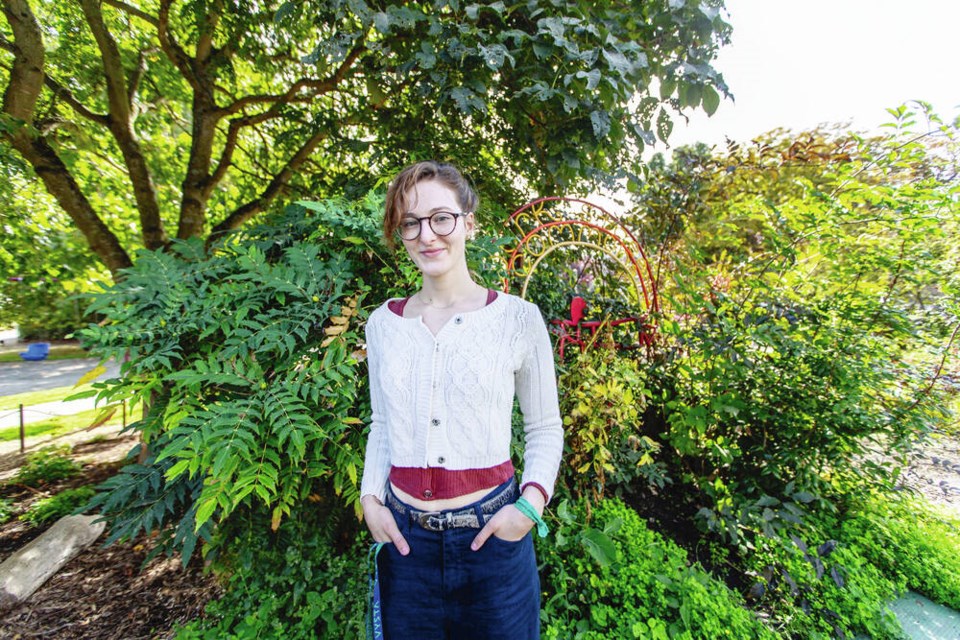When university classes moved online at the beginning of the pandemic, Julia Denley could finally watch her lectures without severe pain that made it next to impossible to focus.
Denley has Ehlers-Danlos syndrome, a genetic connective-tissue disorder that causes her joints to be hypermobile and dislocate easily. Neurological complications make it difficult for her to be upright without significant pain.
A biology major at the University of Victoria, Denley has been working toward her degree for about eight years, but said she’s somewhere between third and fourth-year status, because she’s had to withdraw from semesters when she missed too many classes because she was sick.
She would often dislocate a joint while walking between classes and arrive at a lecture in severe pain that took her focus away from the lesson in front of her.
“I’d spend the whole class gritting my teeth and trying not to pass out,” she said.
When the pandemic forced classes online in 2020, it felt like “a breath of fresh air after feeling like I was drowning for years in the inaccessible environment,” she said.
With the return to in-person learning this fall, however, Denley said her education is taking a hit. She’s enrolled in classes offered online, but the courses she needs to complete her degree aren’t available to her.
Denley is part of a group of disabled students at the university campaigning for online learning options alongside in-person classes.
Sophie Papp, a spokesperson for the campaign and part-time UVic student, said the past 18 months have shown that online classes are possible.
Online options benefit students who face physical barriers getting to class, or who are immunocompromised and don’t want to risk being exposed to COVID-19, as well as international students who are unable to travel to Victoria, Papp said.
The UVic Faculty Association supports the campaign’s goal to improve accessibility, said Victoria Wyatt, a member of the association’s executive committee.
However, concerns have been raised about privacy when it comes to posting class discussions online, as well as the potential to increase faculty members’ workload by requiring them to moderate both in-person and online learning, said Wyatt, an associate professor in the department of art history and visual studies.
“I think that it can be addressed, but it may not necessarily be able to be addressed without additional support,” she said.
Karen Johnston, associate director of public affairs at UVic, said a working group is currently consulting members of the university community about course delivery modes, with any changes likely to be based on course and program requirements.
UVic is offering more than 100 online courses during the fall term, including many of the most popular first- and second-year courses and some upper-year courses with large international enrolment, Johnston said.
The university has two classrooms outfitted with technology that allows students to attend in-person or online in real time.
“We are excited to hear feedback from instructors and students that may help to shape our classroom infrastructure going forward,” Johnston said.



